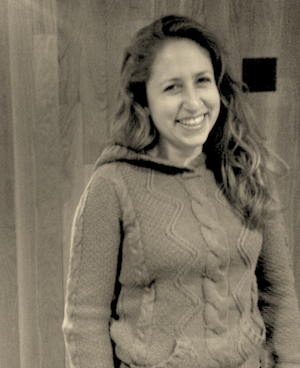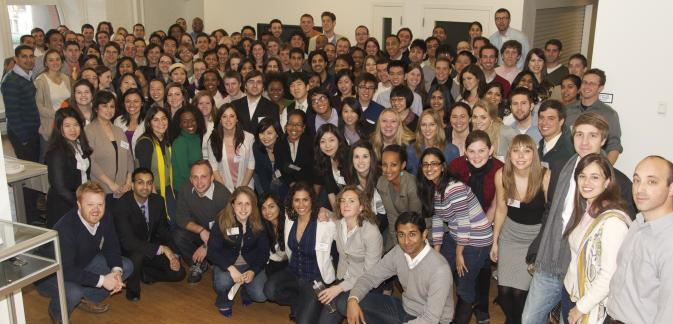StartingBloc: The Gateway to the Supply Chain of Social Innovators
“Real change is not just about bold ideas, but bold social networks.”- StartingBloc Fellow Melissa Richer (NY ‘08)
As the social enterprise sector ramps up, organizations have sprung up to nurture the talent that will be critical in transforming the global economy. While Ashoka Foundation and Acumen Fund capture those who have already been operating in the field with a strong track record, and Echoing Green and Unreasonable Institute capture those who have already launched ventures and are devoting significant time towards it, StartingBloc has filled up a very critical niche of its own.
StartingBloc provides knowledge, inspiration and community to nascent social innovators contemplating a career in the sector via its three annual Institutes for Social Innovation held in multiple cities. Fellows—those who have graduated from the Institute—can be college undergrads unsure of how to scale their passion, or experienced private sector professionals keen to make a switch into sustainability.
A few weeks ago, I had the privilege to sit down with Sarah Bishop, Director of Fellowship for StartingBloc, at their offices in Midtown, New York City. Sarah is one of only three fulltime staff in this incredibly lean organization that has already graduated 1350 Fellows since its conception in 2003. By the time this year’s Institutes for Social Innovation are completed in Los Angeles, Boston, and New York City, the number will swell 1500 and I can hopefully count myself amongst them!
StartingBloc 101 StartingBloc was conceived in 2003 by two buddies in the Chicago area. Blake Bible from Northwestern and Martin Smith from the University of Chicago were both captivated by social innovation but were forced to dredge through resources scattered across the internet to find what they were looking for. At the time, the sector was in its infancy with limited informational infrastructure to nourish interested. They recognized a need, and founded StartingBloc to begin sharing what they had learned with other likeminded Millenials in Boston and New York, holding sessions for one Saturday per month for four months.
As the sector has matured, StartingBloc has pivoted beyond just information—now a crowded marketplace given the university degrees, conferences and online information hubs that have blossomed to accommodate growing interest. The primary focus is on the community that is fostered when 110 passionate individuals go through five days of uncommon experience together.
StartingBloc today is a renowned organization with Fellows flying in from around the world—Nairobi, Bangalore, Dhaka and Copenhagen amongst others. Despite a flock of competitors who provide similar certification and community, StartingBloc is focused primarily on adding value to those just setting out on their careers as social innovators, regardless of whether the individual has a venture or even an idea of what their next step should be.
Once equipped with the preliminary concepts and a robust network, Fellows often go on to participate in other communities, with many StartingBloc Fellows having gone on to the Unreasonable Institute in Boulder, CO and beyond. In this way, StartingBloc sees itself as a feeder, sparking the first step of a lifelong journey. Experience is less important at this stage than diversity and passion.
Each institute is five days, each one devoted to a particular aspect of Social Innovation. Loosely it follows this structure: Day 1. Goal setting and basic skills Day 2. Corporate Social Responsibility Day 3. Social entrepreneurship and launching ventures Day 4. Cross-sector partnerships Day 5. Sustainability
The Perfect Candidate There are two kinds of candidates that are perfect for StartingBloc.
The first is an individual with private sector experience and is now interested in translating their skills and resources into social impact but are unsure where to begin. They come to the institute to find their passion, and how they can begin contributing.
The second is an extremely passionate activist for social impact—for example a student, or somebody who has worked for traditional non profits, or started their own venture—but are frustrated by the lack of access to the resources a private sector professional would have.
StartingBloc conscientiously tries to admit a 50-50 split between these two types of applicants. One side brings the experience and resources, the other side brings the passion and ideas—a perfect fit. These two types of people learn tremendously from each and leave as more effective, balanced leaders. Many even go on to partner on ventures together.
Fellows inevitably end up leaving with a strong community they can rely on for support and inspiration for life. In addition, StartingBloc really tries to help its Fellows find their next actionable two or three steps so that the momentum from the institute pushes through to real change in the fellow’s life. A fellow may be passionate about a goal as lofty as eradicating AIDS in Africa, but without tangible next steps, it is easy for the goal to get shuttered and collect dust until “the time is right.” This next step could be reaching out to a mentor, applying for a job in another city, researching a sector they are interested in—whatever it may be to bring their goals closer to reality.
The Future of StartingBloc By the end of the year there will be 1500 StartingBloc Fellows operating around the world as change makers. This is a growing pool that looks to StartingBloc for services, resources and connections. As a result the strategic emphasis is shifting towards amplifying the network effects between the Fellows.
According to Sarah, most of the resources a fellow is looking for are probably accessible to another fellow somewhere within their six degrees of separation. Although the first person you reach out to is another fellow within the walled garden, their network extends far beyond the confines of the walls. There is an answer to every question. StartingBloc’s job is not to find the answers, but to enable Fellows to find the answers for themselves. When Sarah flies into a new city, the first person she picks up the phone to call is a StartingBloc fellow—she hopes her example will spread to the rest of the community over time. This means creating a robust system to permit the development of community across time and space.
One concern is making the institutes accessible to participants from developing countries who today must go through incredible difficulty to scrape together the $500 (a far more substantial amount when international purchasing power parity is considered) required to attend—already a 50% discount as sponsors cover the other half of every Fellows’ expenses at the institute.
Participants from developing countries frequently don’t have the contacts to reach out to for money, and must go through the additional difficulty of booking a flight and getting a visa. This makes the institute accessible primarily to only the middle and upper classes of the world, severely constricting the diversity of Fellows and perspectives that enter the institutes. This is one of the primary challenges being tackled by the StartingBloc team.
The Bottom Line As an aspiring social entrepreneur, it is hard not to get excited about StartingBloc. The fact that I have submitted my application for the New York institute in May is proof of my approval.
As StartingBloc ramps up its service offerings to amplify network effects between Fellows, and more diverse, outstanding applicants apply to the program, membership in this community will become increasingly valuable. If you’ve been intrigued by social innovation, and are interested in learning how it fits into your budding academic or professional career, I strongly recommend applying. ~~ ACTIONABLE STEP:You can find a listing of ventures launched by StartingBloc fellows here. Find out more about one of them.
This article was written by me for publication on Care2.com

